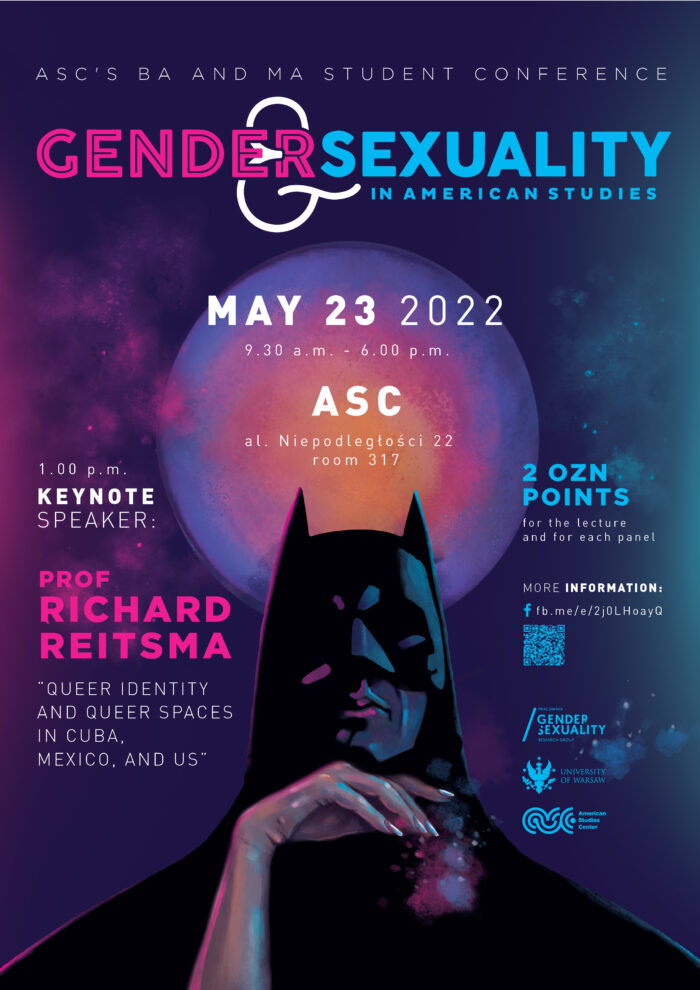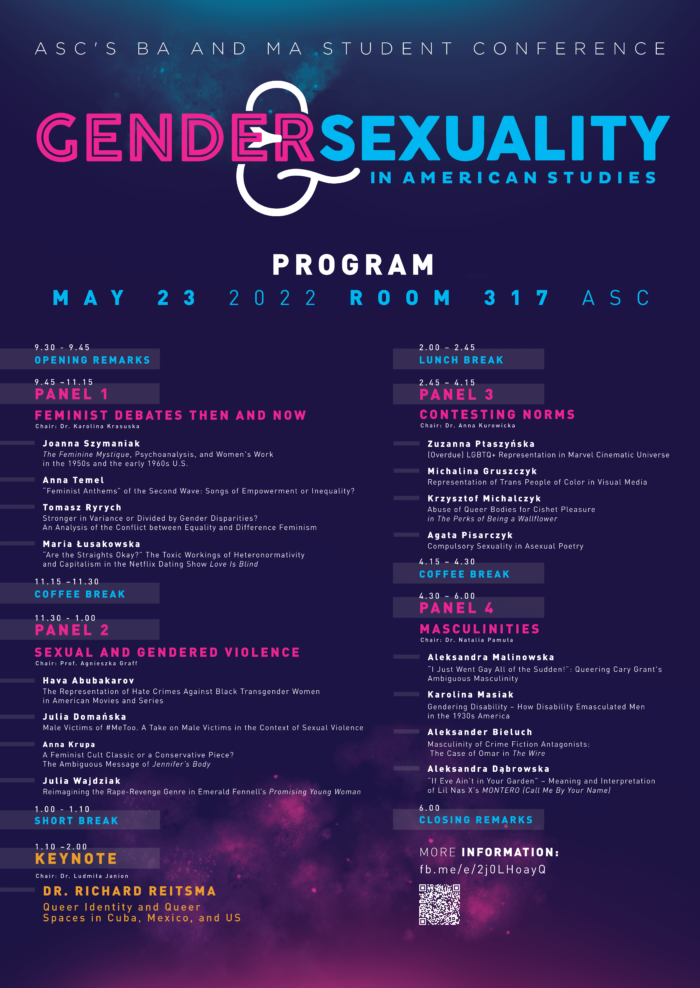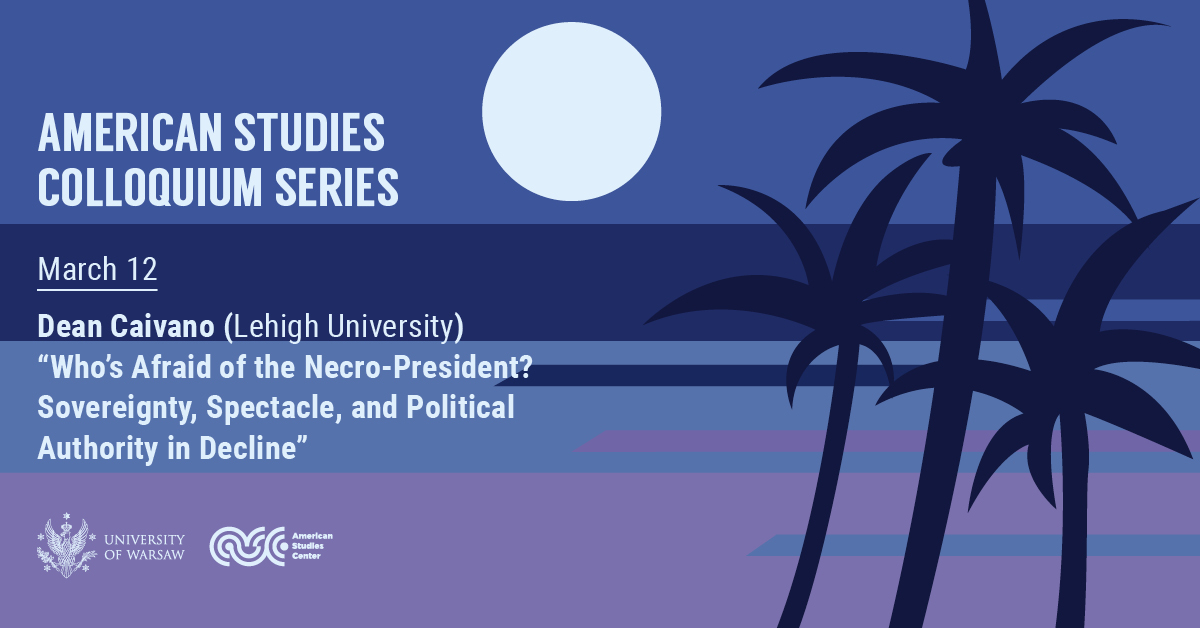ASC’s Gender/Sexuality Research Group is pleased to announce their first student conference
Gender/Sexuality Conference ASC
Monday, May 23, 2022
9:30 a.m. – 6 p.m.
American Studies Center
al. Niepodległości 22, Warsaw
All students and faculty are warmly invited to participate as audience! We have an exciting day planned, with a keynote by Dr. Richard Reitsma and four panels of student presentations, on everything from feminist theories to representation of trans characters on TV and challenging the norms of masculinity.
2 ONZ points will be granted for participating in each lecture and each panel.

Gender and sexuality studies are crucial fields in American studies because they provide important insight into social relations, political struggles, and cultural norms.
Gender and sexuality are constructed, which means they vary in different cultures and change over time. Research based on this assumption encourages critical reflection on norms of masculinity and femininity, gender and sexual hierarchies, processes of identity formation, as well as feminisms and LGBTQIA movements.
The aim of the conference is to create a platform for ASC’s MA and BA students to present their research projects, facilitate an exchange of inspiring ideas, and allow an opportunity to practice presentation skills.
Submissions are already closed. We are over the moon to receive so many great abstracts! All presenters will be invited to a free lunch during the conference and granted a grade of 5 for OZN! Still, all students and faculty are warmly invited to participate as audience!

Please get in touch with the organizers dr Ludmiła Janion and dr Anna Kurowicka at ascgenderconference@gmail.com if you have any questions!
The conference is funded by the Excellence Initiative Research University (IDUB) program at the University of Warsaw and the ASC.




